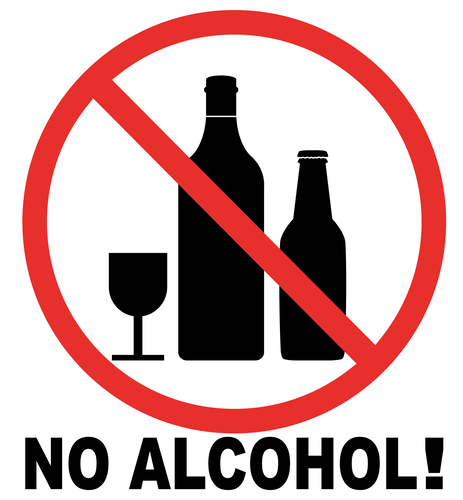Content
Generally, these rehabs are geared toward treating the most severe forms of alcoholism and require individuals to remain on-site for the duration of the program – 30, 60 or 90 days. Treatment professionals provide around-the-clock care and will prepare you for life after rehab. This may include information on how to overcome triggers, the importance of sobriety maintenance programs and what to do in the event of a relapse. Research studies consistently
demonstrate that such techniques improve self-control and social skills and thus
help reduce drinking (American Psychiatric
Association, 1995).
- If you or someone you care about is struggling with addiction, you may be considering potential drug and alcohol treatment options.
- Inpatient alcohol rehab treatment is generally more expensive than outpatient treatment.
- The idea is that consistency (and not having to make as many decisions throughout your day) will help support you as you recover.
- Learn more about what happens during a typical day of inpatient addiction treatment.
- A high ratio of female staff and same-sex groups are also thought to
improve treatment retention. - Knowing the resources and a contact person within each will facilitate access to the
system.
Recovery Homes provide a structured, sober environment for individuals recovering from addiction to alcohol and/or other drugs. These programs emphasize recovery and treatment within a structured, therapeutic setting. Residents are encouraged to integrate with the community and to access community resources, including self-help groups and employment. Some Recovery Homes offer enhanced services for pregnant and post-partum women and their infants, which include coordination of prenatal/pediatric care. Inpatient and outpatient treatment programs are available to people addicted to alcohol or drugs.
Addiction Treatment Centers (ATCs)
If any part of the recovery process interferes with a medical condition, treatment professionals will be able to make the necessary modifications. A person’s health can impact what medications are used and their overall treatment plan. We’re here 24/7 to help guide you or your loved on through rehab and recovery. Treatment providers are available 24/7 to answer your questions about rehab, whether it’s for you or a loved one.
- Some of them turn to alcohol use as a means to cope, relax, and ease their minds.
- It should not be used in place of the advice of your physician or other qualified healthcare providers.
- The core concept of 24-hour care and support is the same no matter the type of facility.
- Our doctors can recommend the program that best suits the person’s needs.
Hazelden Betty Ford medical staff will work closely with you during detox to evaluate your level of discomfort and provide you with medications, if needed, to address any discomfort or cravings. The Salvation Army Adult Rehabilitation Centers have served as beacons of hope to people seeking help for any number of social and life issues, including problems related to substance abuse. Our programs focus on the physical, emotional, and spiritual well-being of the people who choose to participate. Highlighted here are some of the most well-known treatment centers in the country. Based on where you live and your specific needs, you can find a rehabilitation center that can help you make a full recovery.
Twelve-step programs
Moreover, we have robust aftercare and alumni programming in place to ensure that all clients that walk through our doors are set up for success even after discharge. LCSWs are trained in psychotherapy to help people deal with a variety https://goodmenproject.com/everyday-life-2/top-5-tips-to-consider-when-choosing-a-sober-house-for-living/ of mental health and daily living problems, including substance misuse and addiction. They practice strength-based therapy, helping patients use their natural skills and talents to overcome issues and improve overall functioning.

The 24/7 on-hand medical care and psychotherapy available to residential rehab patients increases treatment costs. The price difference should not encourage or discourage someone from choosing the best treatment route for them. The first step in inpatient treatment, for many, is medically assisted detox.
Drug and alcohol treatment and recovery
The administration has a great list of treatment programs for persons dealing with alcohol use disorder and their loved ones to research options. In some cases, our care teams prescribe medication to treat an underlying mental health condition, like depression or anxiety. In other cases, medication is used to help reduce cravings, ease withdrawal symptoms, and help prevent relapse. This is sometimes referred to as medication-assisted treatment (MAT), and is mostly used to treat addiction to opioids, heroin, prescription pain relievers, and alcohol. Medication is typically used in combination with other treatment approaches, like therapy and self-care.
How do I live with a recovering alcoholic?
- Keep lines of communication open.
- Don't blame or demean.
- Encourage involvement in support groups.
- Be available and supportive, but don't dwell on the stressful situation and pester about how they are coping.
- Remember that laughter and humor relieves stress.
Inpatient alcohol rehab treatment is generally more expensive than outpatient treatment. Depending on the severity of your addiction, it may take some time to recover. Many people transition from detox to inpatient or residential treatment, to outpatient treatment, and then to How to Choose a Sober House: Tips to Focus on a sober living environment. If traveling to the facility or scheduling around your lifestyle is an issue, online teletherapy can start your substance abuse treatment at home. Teletherapy appointments offer flexible scheduling and convenience while protecting your privacy.
Immersion Recovery Center
Most of these services are provided within the homeless shelter system. The Massachusetts Department of Public Health Bureau of Substance Addiction Services supports seven Peer Recovery Support Centers throughout the Commonwealth. These centers, located in Brockton, Greenfield, Lawrence, Marlborough, Roxbury, South Boston, and Worcester serve as safe places for people in recovery from substance use disorders to support each other’s recovery. For more information about a Peer Recovery Support Center, please visit the Massachusetts Substance Use Helpline. If you have a VA primary care provider, talk to them about your substance use.

